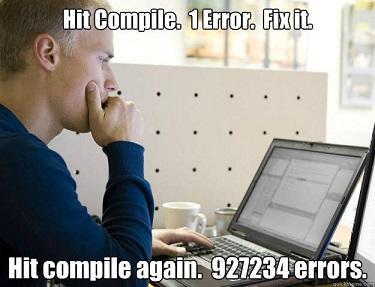I know what is the problem
Where we are going we need all the courage we can get
When I first read the comment that our shiny new gcc 6.2 C++14 compiler has slow printf and scanf I immediately knew what I would do the next weekend. The new MinGW switched to custom implementation and I didn't need anything else to tell what the problem is. Of course, their format string parsing is too slow, they copy data around countless times, no file buffering is used and they have enough levels of indirection to make finding the real code feeling like a treasure hunt. What else could be the problem after all?
Keeping this thoughts in mind I patiently waited for a weekend. When I finally opened MinGW source and searched for printf function, I was pleasantly surprised. The real implementation was only a couple hops away and soon enough I was looking at the heart of printf code. MinGW did try to conceal it a bit though by naming it mingw_pformat.c. But a ~100Kb source file was a very clear hint where all the action is. The format string parsing was straightforward and located in a single big function. Everything was passed by pointer and there were hardly any levels of indirection. But the data was clear — MinGW printf is twice as slow for integer numbers compared with msvcrt.dll and scanf is even worse. Increasing the file buffer size didn't help at all. Reluctantly, I had to admit that the problem is somewhere else. But what could possibly be the problem?










 solutions and enjoy the problems. :)
solutions and enjoy the problems. :) 


